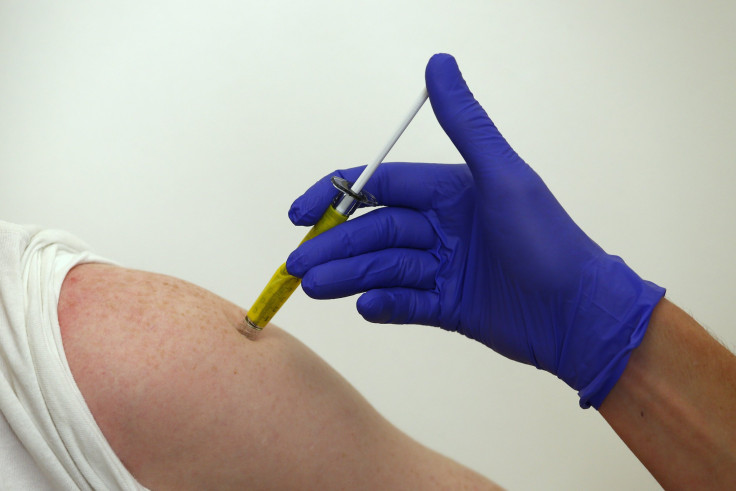Measles Outbreak Affects More Adults Than Kids. Is It Too Late To Get Vaccinated?

For U.S. adults worried about possibly being exposed to measles, health officials have said it’s not too late to get vaccinated. The ongoing measles outbreak that started in California has mostly affected adults who were not immune to the disease, either because they were never vaccinated or only received a single dose of the vaccination before two doses became the standard, according to health experts. Receiving the vaccine for measles, mumps and rubella -- or MMR -- today could go a long way in protecting against the virus that causes skin rash, fever, coughing and, in extreme cases, permanent hearing loss or brain damage.
Sixty-two percent of measles cases in California since December were in adults 20 years of age or older, according to state health officials. “We are starting to see more adults get measles and spread it,” Anne Schuchat, director of the U.S. Centers for Disease Control and Prevention’s immunization department, said in a statement, according to WebMD. “If you’re not sure if you’ve had measles vaccine or not, or if you never had measles, we urge you to contact your doctor or nurse and get vaccinated. There’s no harm in getting another MMR vaccine if you’ve already been vaccinated.”
The government has recommended that young adults who were not vaccinated as kids get protected, especially college-aged students, people who frequently travel oversea or those planning to have children. One dose of the MMR vaccine has been proven to be about 95 effective in protecting people against all three forms of the measles virus.
For those not sure whether they were vaccinated as a child, a blood test can show whether they are immune to measles. People born before 1957 do not need to get the MMR vaccine, according to the CDC, because they lived through several outbreaks of measles prior to the vaccine being developed in the early 1960s and would more than likely have developed immunities to the virus. The federal health agency has estimated that between 95 and 98 percent of people born before 1957 are immune to measles.
Before the measles vaccine was developed and widely distributed in the U.S., millions of Americans contracted the virus every year. Of those cases, 400 to 500 were deadly, and another 1,000 developed life-long disabilities due to complications with the illness. The measles vaccine has resulted in a more than 99 percent drop in measles cases in the U.S., the CDC has said.
The current outbreak has been linked to several cases from California’s Disneyland theme park, the first of which were identified in December. Cases have since been confirmed in 14 states and Mexico.
© Copyright IBTimes 2025. All rights reserved.






















